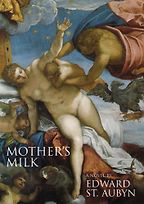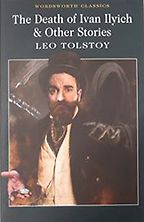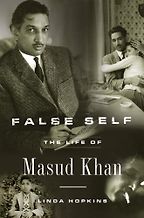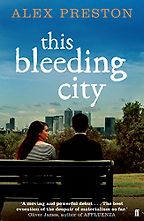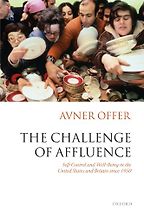Tell us about Mother’s Milk by Edward St Aubyn.
Mother’s Milk, I suppose, is about the difficulties for mothers of providing good care for babies and small children in a societies where mothering has the status slightly less than that of a street sweeper. At the same time it shows that if the care you received when you were young was unresponsive it leaves you feeling very empty and dissatisfied and emotionally deprived and makes it hard for you to relate well to partners. So it’s kind of about the causes and the consequences. The central character is struggling with all sorts of problems that relate to his own early care and at the same time he is a father with a wife and small child and there are parts where he discusses the fact that the mother of his child is up against a culture which is really hostile to the provision of good care.
This is the fourth book in his quartet and he was a heroin addict, wasn’t he? Is that a fairly typical trajectory? From poor care to addiction of some kind?
Well, actually, he’s a friend so I know rather a lot about him and I knew his parents. Heroin addiction is much more… His heroin addiction is associated with personal deprivation in early years but it’s also very much associated with sexual abuse. In his case, of course, he was sexually abused by his father.
Oh, of course. I had deleted that hideous aspect of it from my mind.
But he moved on from discussing that and the impact of that, which was the major theme of the first two books.
And you knew his father?
Roger? Yes, I knew him very well. He was in many ways a charming, intelligent person. Of course, he was also a very cruel person. But he was generally cruel to women rather than men. So he was always a highly entertaining man in my dealings with him, but, obviously, you wouldn’t have wanted to have him as a father. You wouldn’t have wanted to be his daughter or his wife. And also you wouldn’t have wanted to be his son.
You say society is hostile to mothers and maternal care, but isn’t it a lot better than it used to be? I’ve watched the Robertson films [made in the 1950s, documentaries that follow small children going into care and into hospital] and things seem to have come on a lot since then.
In some respects, but I think this is a very difficult question to answer – has mothering got better or has it got worse?
Well, we’re not allowed to beat them as much as we used to be allowed to?
Well, an awful lot of parents hit their children still. About 90 per cent of parents hit their children. My latest book shows that about a quarter of mothers are what I call huggers, and they probably do provide the best care that babies have had in the history of the world, but some of them become depressed, because they are isolated or for whatever reason, and then it’s not so good.
What do mean by hugger?
Well, someone who puts the needs of the baby first, obviously. Lets the baby sleep in the bed, feeds on demand and all that sort of stuff. Maybe there was more hugging in the 60s and 70s but the trouble is that that was when the divorce rate started to accelerate. It’s difficult to speak scientifically about this, but I would estimate that in the last 30 years there has been a dip in the domestic household economy – more women going out to work, though not nearly as many as everyone thinks. Still only a third of children under three have a mother who has any paid work.
Astonishing.
The reason it’s astonishing is that we’re in the top social class and working full time is much more common among university-educated mothers.
So, if we’re huggers and being nice to them all the time, it’s better but still not great?
No, it’s fine as long as you don’t get depressed. There are huggers who work, though they don’t usually want to, but they are more likely to find substitutes who also hug. It doesn’t matter who does the hugging as long as somebody does.
Huggers sounds a bit derisive to me. It’s not meant to be?
Not at all.
Let’s move on to The Death of Ivan Ilych. What’s this got to do with anything?
It’s possibly the best short story ever written, depending on whether or not you consider The Leopard [Giuseppe di Lampedusa] to be a short story, but it is only about 50 pages or so. It describes how easy it is to go through life, in the same way as Eliot describes in ‘Prufrock’, trying to please everyone and to be a good person, to conform, without really having any authentic intimacy with anyone. And the great importance really of waking up and smelling the coffee and seeing that the superficial things in life really are superficial and that what actually matters is how you conduct yourself in your relationships with your intimates.
Tolstoy was particularly bad at that.
Well, he was, yes. And, er, that’s true, of course, of many authors. They can be extraordinarily adept at writing stories about the things that they are unable to do themselves.
Five Books interviews are expensive to produce. If you're enjoying this interview, please support us by donating a small amount.
How would you define authentic intimacy?
That’s a whole subject but sincerity is that you feel passionately that something is real and important, as opposed to authenticity where you divine internal truth, your true feeling and also external truth, the true feeling of other people. It’s not about being Tony Blair who is sincere but inauthentic; it’s about being… well, who?
Barack Obama seems authentic?
It’s very difficult to know, though, because these people are so good at presenting themselves. Somebody who is authentic in the public eye… well, very few people. Most high achievers are not very authentic. Unless you know people very well it’s hard to judge.
I suppose the point of superficiality is that it’s a defence against vulnerability. Being authentic makes you terribly vulnerable.
I don’t think it’s the same thing as telling the truth. My mother, in her later years after my father died, was a good example of someone who became very wise when she got older. If she watched me doing something stupid, she wouldn’t say: ‘Oh, don’t be so stupid,’ but she’d ask a question: ‘I wonder if you’ve thought about this or that?’ If I didn’t want to hear any more she would let it go. She didn’t try to impose her version on me but at the same time she tried to signal what she felt was true. She certainly didn’t tell lies.
An authentic person in an inauthentic environment, like a corporate headquarters or a television company, might need to construct quite an elaborate persona and it might entail… well, keeping your mouth shut a lot.
Tell me about False Self by Linda Hopkins.
Well I think it’s an extraordinary book. It’s essentially a biography of a psychoanalyst who was famous in the 60s and 70s called Masud Khan. Masud was actually a friend of my parents, so I knew him, and he was a very glittering figure. He was incredibly handsome and he was married to a famous prima ballerina of that era and this book was written by a psychoanalyst and it’s an attempt to help you understand the difficulty Masud had in understanding himself and achieving an authentic self, and his failure.
And it’s a very disturbing book in that Linda Hopkins had access and she’s interviewed a lot of his patients and she’s interviewed everybody of any significance in relation to him. But at the same time she’s got hold of his diaries and so you have this internal story of what he is trying to achieve in his life emotionally, and the struggle that he has, and the way he rationalises things and the way he perceives things. It’s an extraordinary exploration of a highly intelligent and citable man’s attempt to be honest with himself and others and his failure to do so.
He was presumably in analysis? Who was he in analysis with?
I think one of the points that the book makes is that it was the era in which psychoanalysis was developing the technique of regression through the transference which means that you will re-experience your difficulties in early infancy and as a toddler through the relationship with the therapist. Unfortunately, Masud didn’t really achieve this in his own analysis. He was first analysed by Donald Winnicot but apparently his analysis with Winnicot only lasted two and a half years and he had other analyses but none of his other analysts were capable of really getting through all his defences.
Tragic, really.
A very sad story. In many ways one of the purposes of the book is to try and bring his reputation back. He was a very unethical analyst who slept with his patients so it’s an important book – he was editor of the Psychoanalytic Journal – but, perhaps most important of all, he was a key figure in helping Donald Winnicot to achieve what he achieved intellectually and as a therapist. But most of all it tells us all about ourselves. The problems Masud had are found in most people, in all of us, to some degree and it’s an exploration of how the hell you manage to overcome your self-perception and get through to something real, overcome your narcissism and your omnipotence and various defences that we build up to protect ourselves from the truth?
This story suggests that you can’t, which is very depressing.
On the contrary. She suggests that he might well have been able to had he been able to benefit from the kind of analysis that was only being developed at that stage. A lot has been learnt since then. Nowadays there are analysts who are lot more sophisticated.
This Bleeding City by Alex Preston.
This is by a banker who is an English literature graduate and has the narrative here that shows what it was like to be in the thick of it, on the frontline, during the credit crunch, what it was like on the inside. But, more than that, it’s a good book because it’s a real proper novel. It starts off at university and it is part of that not-very-much-discussed problem that is the shift from having been part of a happy group of students to suddenly being in the world of work. Which in some ways is, I always think, what The Deer Hunter is about, though of course, the details are different. You’re talking about a group of workers who are very close and who are then smashed to pieces, literally, physically in some cases. I think as a metaphor that’s something that quite often happens. That people go from feeling quite part of a community and part of a group that’s intimate at university to feeling very isolated and under pressure.
The Challenge of Affluence, Avner Offner.
He provides specific details of how Thatcherism and Reaganomics in America smashed the family to pieces. What I was talking about earlier, the disinvestment in the domestic household economy, he provides all the evidence. Insecure working conditions combined with increased levels of education in women makes everybody compete ever harder and creates a much greater conflict for women about whether to stay at work or not. During this period, of course, we all borrowed much more money in order to afford property and then we have to work to afford the mortgage and it became increasingly regarded as essential to put family and children second and put work first especially in the higher classes. And he provides all the evidence for this.
All this stuff about how society is making us ill and we’re all mentally ill because we’re richer sounds very nostalgic for a simpler past of warm beer and cricket. But as a woman surely things are better because we don’t die in childbirth or, ideally, get abused by our husbands?
It depends when exactly you choose to compare. If you compare with 1950 there is strong evidence from American research that a woman in her 20s today is five times more likely to be mentally ill using the same method of measurement as a woman going back to 1938. Actually, it includes women in their late teens as well and there is a linear increase the closer you get to the present day, overall. So, no. It is a complete myth that feminism in the American form, and I’m talking only about Britain and America here – the picture is probably very different in Sweden and Italy or Spain…
I live in Italy and it’s very macho. I wouldn’t really want my daughter to grow up here.
Well, it’s complicated but Italy does have the lowest rate of mental illness in the major European nations. Actually, though it’s very unfashionable to say it and women like yourself don’t want to hear it, but I’m telling you something that is absolutely certainly true: Bridget Jones is a hell of a lot more unhappy than her grandmother.
That’s fairly clear, I think.
Well, you say that, but you started off with the comparison to medieval times… I’m not trying to be nostalgic. I’m not saying what the answer is but I’m saying that this is a fact. I don’t think any thinking people would suggest that the solution would be to return to a sort of collectivist society in which women were seen and not heard, but my point is that American feminism has adopted the men-in-skirts model in which men have not changed very much but women have adopted the worst characteristics of men and without women learning a new way of being women.
Get the weekly Five Books newsletter
More intelligent women in the upper echelons of our society really do need to get their heads around the fact that the form of feminism we’ve had has been an absolute disaster. Anyone who has teenage daughters will quickly agree. They look at their teenage daughters and just think: ‘What the fuck is this? Is this what we were fighting for? Ever shorter skirts, shagging on a random basis, completely obsessive concern with appearance, obsession with exam results? Is that what it was all about?’ Teenage girls at competitive schools are the most mentally ill group in our society.
Five Books aims to keep its book recommendations and interviews up to date. If you are the interviewee and would like to update your choice of books (or even just what you say about them) please email us at [email protected]
